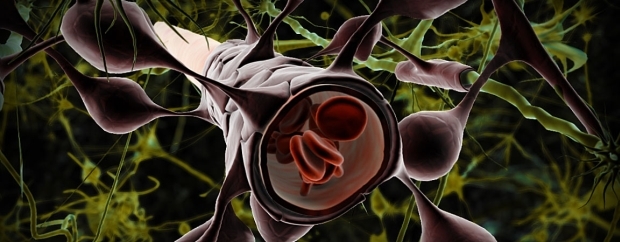
Image by Ben Brahim Mohammed. (CC BY 3.0)
New research shows how bacteria play a crucial role in the formation of the nervous system.
Dr Chris Smith from the Naked Scientists told This Way Up's Simon Morton about new research showing that mouse pups born to mothers uncolonised by any bacteria have a defective blood brain barrier; a protection between the nervous system and the rest of the body.
Sven Pettersson and a team from the Karolinska Institute in Stockholm, Sweden, was able to restore the barrier's function by giving the animals a transplant of bowel bugs from normal, healthy mice. For the first time, this links the function, integrity and development of the nervous system with the bugs that colonise the intestines.
The researchers speculate that through various signals, including production of fatty acid molecules, the presence of bugs in the gut activates the cells that form the blood brain barrier.
The Karolinska team still needs to confirm whether the same process occurs in humans. If it does, the findings suggest that what a pregnant woman eats, and if she is exposed to antibiotics, may influence the development of her baby's blood brain barrier.
Dr Smith says, "I was really shocked when I read this because we're learning almost on a week-by-week basis that the microbes that live on us and in us...they're almost more important than some of the organs in our body, these microbes. We've learned already in recent years how the microbes in your gut control your blood pressure, they control whether you're susceptible to certain diseases. Now we learn that they're involved potentially in the blood brain barrier, which is this special chemical ring fence that isolates your brain and nervous system from the rest of your body, and that's critical for the delicate functioning of the brain. This also seems to be relying on bacteria to trigger its formation and function."
The discovery could also lead to a better understanding of the immune disease multiple sclerosis, a major feature of which is a highly variable, relapsing and remitting course that affects different parts of the nervous system at different times. Perhaps the intestinal bacteria of MS patients are playing a role in manipulating the blood brain barrier, allowing the immune system to periodically gate-crash parts of the brain and spinal cord to trigger inflammation and disability.
Hear Dr Chris Smith from the Naked Scientists talk to Simon Morton.

